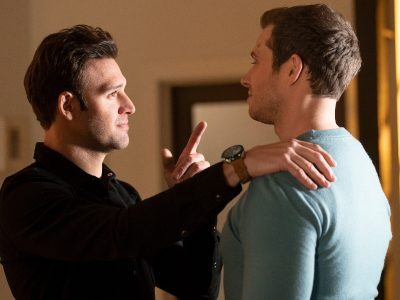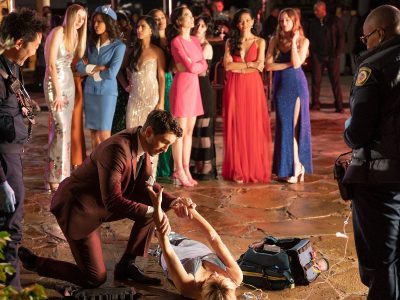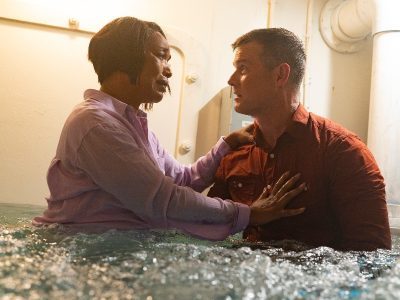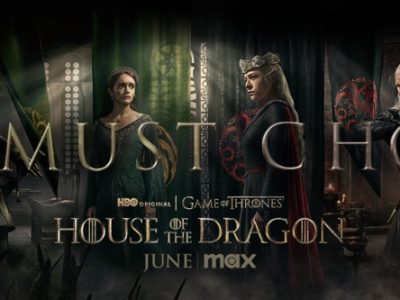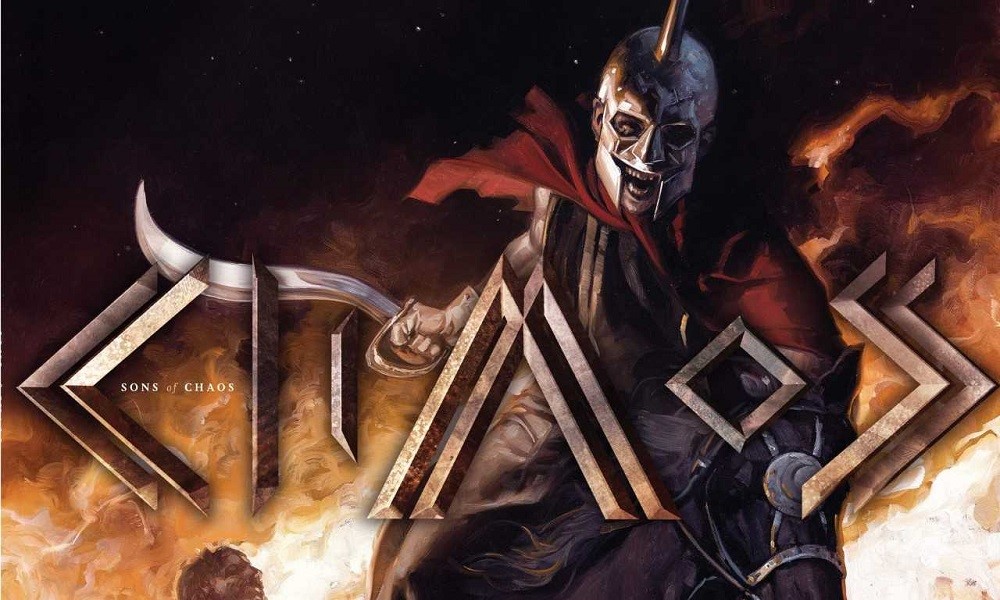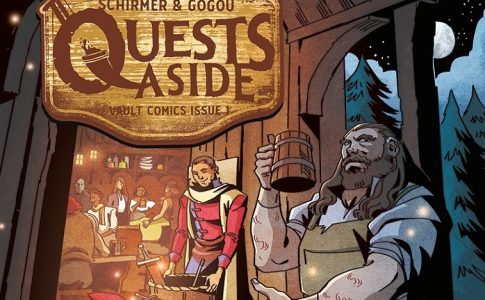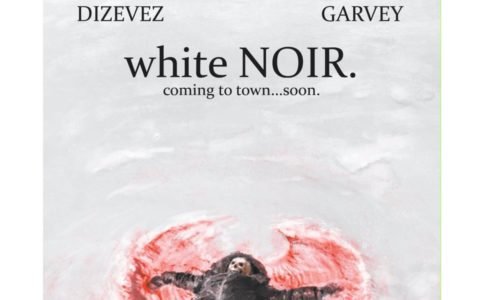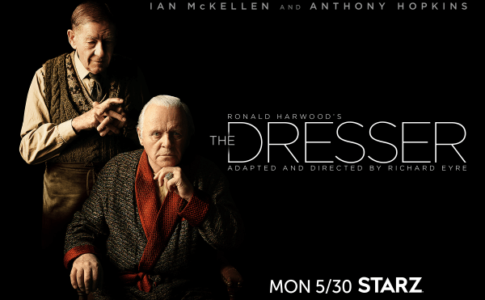Sons of Chaos – Comic Review
I’ve just spent the last two hours lost in a historical war I’ve never even heard of. Sons of Chaos is an oversized hardback graphic novel telling the story of the Greek War for Independence.
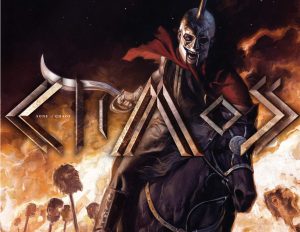
Cover art by David Palumbo
Synopsis
The Greek War for Independence was a conflict that quietly influenced the entire world.
Participants ranged from the London Stock Exchange to celebrities such as Lord Byron, as well as average impassioned Americans willing to transport themselves across the Atlantic to fight alongside the Greeks. This conflict was the pinnacle of that we now know as the Romantic Period and yet, it’s a war that few know ever existed outside of the Greek and Turkish cultures: a war that stimulated the fall of the Ottoman Empire and shaped what we now know as the Western World, and in a sense is being fought today under a different heading amongst the political leaders of the Eastern and Western worlds.
The son of a Greek leader, Markos Botsaris, was taken prisoner as a child and raised within the dungeons of an Ottoman pasha. Ten years later, it’s 1821 and he heads back to Greece intent on leading his people in revolution. This epic drama of a people fighting for their independence brings into focus a widely unknown portion of world history for modern readers.
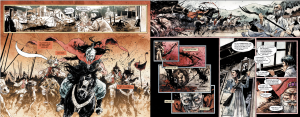
Sons of Chaos
Sons of Chaos is written by Chris Jaymes and illustrated by Ale Aragon, with letters by Pablo Ayala and colour by Hi-Fi Design. Jaymes is an award winning American writer, director, producer, actor and musician. Yep, he’s done a little of everything before turning his hand to historical comic books. Argentinian artist Aragon has worked on titles such as Deadpool and 28 Days Later, as well as co-creating Overlook.
It follows the story of Markos Botsaris. He was kidnapped as a child when his people were massacred and kept prisoner in the dungeon of the Ottoman pasha Ali. Ten years after his capture he escapes, and returns to Greece with the fire of rebellion burning in his heart. What follows is a tale of war and revenge, littered with brutal violence and betrayals. The press release I was originally sent describes it as a narrative epic perfect for fans of Game of Thrones. I think that’s a pretty apt description. It has the same expansive scope of a region separated by tribal loyalties, waiting for a figurehead to unite them.
Funnily enough I have not long finished reading Frank Miller’s Xerxes, which deals with a similar situation a millennium earlier in Greek history. Sons of Chaos definitely has echoes of that period of history. There’s a moment where Markos leads a group of 6 against 600 Ottomans and comes off the victor that can’t help but evoke memories of Thermopylae.
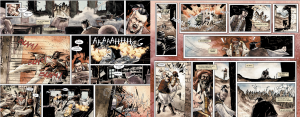
Sons?
Markos is the son of Greek leader Kitsos Botsaris, but who are the other sons of the title? Well first there’s Muhktar. He is the brutal warrior son of Ali Pasha, desperate to prove himself in the eyes of his decadent, scheming father. Muhktar has a personal hatred for Markos which is reciprocated with a burning ferocity. The third son is Photo, a childhood friend of Marcos. He now lives in Gardiki with a few familiar faces Markos will discover.
Heavyweight but not heavy going
I was surprised at how fast I tore through the book, considering it clocks in at a hefty 192 pages. It’s a testament to the storytelling of author Chris Jaymes. He’s whipped up a plot that grabs hold of you and doesn’t let go until it deposits you, breathless, in a changing world at the end.
Interview
I had a few questions after reading, and doing a little of my own research. Chris and Alejandro kindly agreed to answer them and you’ll find the interview below. First up, Chris.
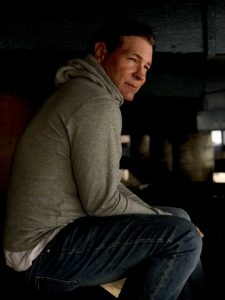
FN: What drew you to write the story of the Greek War for Independence? Is there a personal significance?
Chris: The initial pull was stimulated by a Greek friend of mine, who introduced the subject matter. As I got further engaged understanding what happened and how recent this revolution was, my curiosity got more and more engaged. The more I realized that just moments ago, the world was in such a different place, the more my brain started spinning, attempting to make sense of how it’s possible the world was like this, and why not now? Why not us? Why did so many have to suffer for me/us to arrive at this time of comfort and convenience and abundance? And the reality of having to make daily decisions based on actual life and death situations stimulated my awareness to imagine being inside of that time and experience.
And the fact that most of us, (self included) are unaware of what so many others went through for us to have the comforts that we currently take for granted, only because we really don’t know any better, drove my desire to further understand what it would be like to be born into a time of chaos, where your day-to-day existence was facing constant duress that had nothing to do with you, and yet, was entirely focused on destroying you… destroying your family and your world.
The concept is surreal to me, and the fact that this revolution occurred only 200 years ago, defined Western Europe, returned Greece to freedom after 400 years, and stimulated the fall of the Ottoman Empire, and the fact that most humans outside of that specific part of the world know very little about it, seemed like a good reason to tell the story.
FN: From my (albeit minor) research, you took a little poetic licence with the story of Markos Botsaris. What made you decide to make those changes (his imprisonment, the love story)?
Chris: Every story changes, whether it’s a news story, a documentary, a cartoon, or the retelling of last night’s events to your friends. That’s just a part of storytelling. Compressing time and relinquishing bits that don’t enhance the experience for the listener, while also adding your bias in a manner that allows you to tell the version of the story that you want to tell.
When reading about history, it is typically a presentation of elements presented as facts, and seldom within these possibly accurate, possibly inaccurate presentations do we attain much information about the actual humans involved… their moods, their relationships, their sex lives or drug intake, their alcohol problems and hobbies, or communication patterns, internal doubts, external inhibitions, and on and on and on. You get basic shells that summarize a few key elements of the individual’s life or actions, and a polarized generalization, and just like CNN and FOX the same story is sold in different ways. So what actually happened during the creation of the story was extensive investigative reporting to discern what may or may not have occurred, and then at times bits of history were altered to get the larger point of the story across.
In Sons, there are times where I changed things to fit the medium, and primarily to deliver an engaging story while keeping the length of the book at a palpable level. Each time I changed a factual element to a fictitious one, it was after arduous internal discourse about why and how, and there was a reason for each decision. For example, when the village of Souli was destroyed by Ali Pasha, Markos Botsaris (the lead character of the book) and the other survivors went to the Ionian Islands and trained with the French army. This version would have removed Markos and the audience from gaining an intimate understanding of the nuances of Ali Pasha’s existence (the opposing character) and the psychological equation behind his agenda. By bringing them together during this period, and placing Markos as a prisoner the larger story is served by magnifying the personalization and creating a living dynamic between the two of them.
This was justified in my mind in this manner. If as a child, you were to witness the destruction of your village and the slaughter of your mother just in front of you, the psychological factors of that reality would be something that would define your existence, and in a sense, imprison you within this reality for the rest of your life. So instead of leaving the imprisonment psychological, I created an alternate scenario to actualize it for the sake of storytelling. And this is the manner I approached each scenario where historic elements were altered for the book.
FN: What is your favourite moment in the story?
Chris: The pivotal moment for me is when Markos shifts from a reluctant leader to one the moves with force. Throughout his life, he is a reactionary character and those around him manufacture the reality he faces. He is sensitive and cerebral and a victim of circumstance. This changes when Ali Pasha comes to slaughter the village of Gardiki where his father and sister reside. As the brutality unleashes and Markos has another level of his world taken from him, he finally crosses the threshold and defines himself as a man, and an individual that will no longer accept the tyranny being imposed upon what is left of his world. He defines himself as a leader and will no longer be a victim within the chaos he was born into.
This is the moment in life where we take responsibility for what we are facing or avoiding, and we implement a participation with force and determination where the individual inside of us surfaces, and takes a stand to do what must be done. This is an extreme example, but we do this in many ways all the time. Standing up to the thing we’ve avoided dealing with, for some reason we often need to be pushed to a threshold before we take action, and typically, we are always better because of it. That’s my favorite moment.
Obviously a graphic novel rests on its art, otherwise it’s just a novel, so I had couple of questions for artist Alejandro Aragon too.

FN: I was intrigued to know if there were any particular difficulties with illustrating a historical comic, did you have to do a lot of research into the clothing/weapons of the period?
Alejandro: Oh, yes. Working on any historical comic means your research is going to be significant I had an assistant working with me, and part of his job was to organize the resources. Also, by the time I started Chris had assembled a dropbox filled with loads of files, from books and paintings, and images, from all the research he had done. That said, the idea of this project was never recreate a precise, meticulous historical book. It was our interpretation of the time period and event and we took liberties to fill in the blanks as we imagined it. From the beginning, Chris said the historic elements should be “as accurate as possible, but if the reader’s experience isn’t amazing, then what we are telling is irrelevant.” Our primary goal was based on creating a compelling story and visual experience that would engage the world of readers to care about what we were telling, while honoring those who were actually involved in this specific revolution.
Working on a book this of this size and length is a challenge and something you don’t get a chance to do very often. We did our best and worked extremely hard for a very long time, and I’m proud of what we achieved and happy it has been published.
FN: Do you have a favourite page, one you absolutely loved drawing? If so, can you tell me why?
Alejandro: Yeah, of course. My favourite pages are a few of the first ones. I feel more comfortable working on a page with just a few panels instead too many of them. That’s because I think one of my strongest skills is “framing and composition”. I like to get enough room on the page to try different shots and find the best composition possible for each scene. So I think my favourite is that one when Marcos, as a child, wakes up at night, runs through the hill to his villages to find a lot of dead bodies and heads on the ground.
Summary
My only negative, and it’s a truly tiny niggle, is that there are a few typos throughout the book. Yes, it’s a small thing, but it’s something that always jars me out of a story when I’m reading, especially when it’s such a lavishly put together book as this one. If that sort of thing doesn’t bother you though, I doubt you’ll find much to disappoint you in this epic tale.
You can order Sons of Chaos from Amazon, or check your local comic store and see if they can order it for you.
